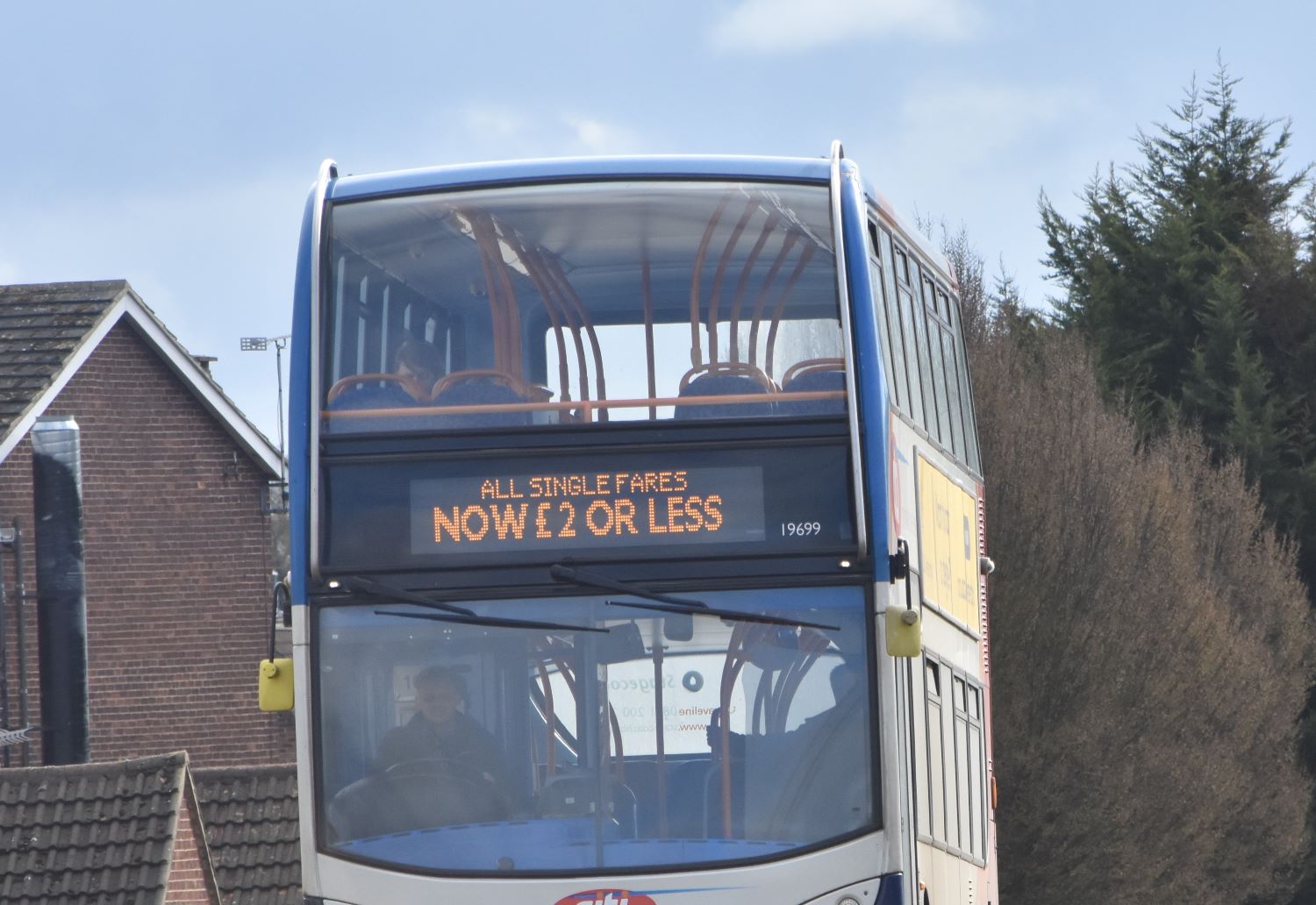This month’s HS2 announcement means more money for BFCG, but some operators are feeling forced into the scheme
The extension of the £2 capped bus fare in England, announced by the government this month, has been welcomed but concerns remain, particularly around the level of reimbursement.
The price of single fares on in-scope routes run by operators signed up to the Bus Fare Cap Grant (BFCG) scheme was due to rise to £2.50 on 1 November. However, as part of a package of measures for bus announced on 4 October from savings made via the government’s partial scrapping of HS2, up to £260 million is being made available to ensure the cap remains stable until the end of December 2024.
The Department for Transport (DfT) lists 178 operators participating in BFCG, which began in January and has been extended twice. However, some, particularly smaller, operators have expressed unease over the level of the lump-sum reimbursements.
Bill Hiron, Managing Director of Stephensons of Essex and Chair of ALBUM, says: “The government clearly sees a £2 fare cap as a temporary benefit to passengers and we support that. We will work constructively with DfT on this and other measures that can improve the performance of buses, particularly the critical issue of the management of the highway network.
“The cost to operators reducing fares must be met fairly by the government, particularly for ALBUM members, who are often providing small, intensely local networks where the slightest disruption to the stability of services can be very problematic. Like all labour-intensive industries, bus operator inflation is well ahead of measures such as consumer price index or retail price index.
“It is also critical that the government develops an exit strategy for the end of the £2 scheme. When fares go back to pre-£2 levels, increased by bus industry inflation, the effect on passengers will be dramatic. The longer the £2 cap continues, the more important it is to work out how the government is going to help manage the route back to commercial fares.”
Fare capping is a ’good message’

Fears over the exit strategy are often repeated, but Centrebus Director Julian Peddle gains encouragement that what he initially labelled as a “gimmick” appears to now be forming a long-term strategy.
“Originally, we thought it was going to be a short term-thing, and it was a case of ‘three months, six months, but what happens at the end of it?’ But it’s going to be here, in my view, for the next seven years in some form or another. The government has decided to intervene on fare levels in the bus industry. It’s not going to suddenly stop doing that.”
Although Mr Peddle says he “is not delirious” about the level of reimbursement, he feels his operations had no choice but to be part of the scheme due to competition with those who are. He says BFCG has been headline-grabbing, adding: “There are all kinds of tweaks you could do to it, but this is very simple and saying you won’t pay more than £2 is a good message to sell.”
He welcomes the diversion of HS2 money to bus, saying: “This is the first time, I think, the government has said to the subsidy-guzzling railway: ‘You need to get a grip or we’re going to give the money to other things.’ That’s a very fundamental change. I’m very positive about what the Prime Minister said.
“It sounded clear to me that the bus industry is now seen as far more important than it was before. Whereas BFCG was a kind of stray political thing back in January, it’s now part of an evolving strategy.”
Long-term fears over cap scheme

David Shelley, Director of Grant Palmer, is looking into the possibility of his operation joining the scheme for the first time from November onwards, but is still awaiting a reimbursement calculation from DfT. His level of acceptance of signing up has grown with the increasingly long-term-looking nature of BFCG.
“The problem is, if we’re not in the scheme, bearing in mind it’s going to go on for another 14 months, it’s going to seriously bring into question a number of our key services economically because we can’t continue to run a situation where our fares are considerably higher than other operators’,” he says. “You get forced into a situation where you’re making decisions that aren’t right economically long-term because of the short-term situation.”
Mr Shelley worries that, as reimbursement offers seem to be based on historic data, operations like Grant Palmer which have expanded will lose out when it comes to BFCG funding. He also mentions having to produce large amounts of data, either for DfT or to calculate feasibility, as a problem for smaller operators.
Another consideration of his is that other forms of discounted tickets and tap-on, tap-off schemes are undermined. “It maybe makes sense as a short-term measure but, as a long-term measure, I’m not quite sure where we go with it,” he adds.
“I think customers do want cheap fares, but they also want sustainability and they want investment and, if you’ve put all your money into one part of that mix and it affects other parts of the mix, you’re maybe not delivering what the customer wants long-term.”
DfT update on BFCG
DfT says that, due to time constraints, operators will initially be provided with allocations for November and December 2023 based on existing data available. A new data collection exercise will be used to calculate funding for the remaining 12 months of the scheme and this will also identify any under-fundings for November and December, which will be rectified in January to December 2024 allocations.
In response to some operators feeling short-changed by the reimbursement levels, a DfT statement says: “Preliminary evidence from our monitoring and evaluation suggests that the scheme is boosting patronage across the country and, with the Prime Minister’s announcement, we are confident that it will remain at the forefront of the public’s mind.
“DfT’s approach to funding ensures that, where the scheme generates patronage, operators retain all the additional revenue, supporting operators.



























